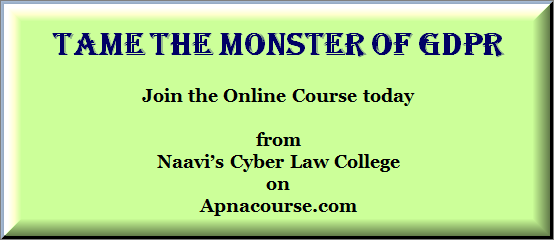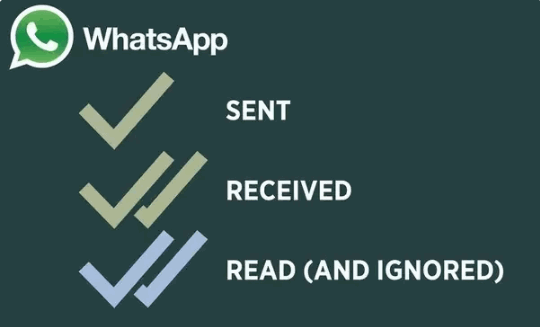Yesterday’s post titled “Bitcoin is Digital Black Money… Is Fake news being promoted by Cogencis?” attracted some serious counter comments which has raised some questions. This article was not the first of the articles I wrote on Bitcoins.
In fact, like many other technology supporters, I was also fascinated by Bitcoins when the concept was first introduced and even pointed out that Bitcoin is an electronic document that is recognized in Indian law namely the Information Technology Act 2000. However, some of the current readers of this blog might not have followed my views in the past and why I changed my views on Bitcoins and now came to the conclusion that Bitcoin is Digital Blackmoney. One such person has raised some questions which I will try to respond here.
Ofcourse, for those who may have a financial stake in Bitcoin, my criticism of Bitcoins and urging the Government to ban it, hurts. I am sorry for it since many of these people are honest individuals of the society and may not themselves be either corrupt or persons who accumulate black money by design. They are the people who have been caught in the crossfire in the fight between the Government trying to curb black money and the real blackmoney holders which includes the politicians, businessmen and even bureaucrats who are expected to take decisions on either legitimizing or banning bitcoins.
But these are the people whom the real blackmoney holders are using as a shield to prevent the Government from going ahead with its anti corruption drive. Unfortunately, since my eyesight is focussed on the people behind this shield, I keep firing my thoughts which may look damaging to the innocent persons in between. Readers need to excuse me for hurting them which I cannot avoid in the larger fight though I have suggested some remedies in the past to address their concerns. But the time for protecting the interests of innocent bystanders is now past and we need to go ahead with the elimination of the menace called Bitcoin.
Why do I call Bitcoin as the “Digital Black Money”?
Bitcoin is mainly supported for it being a “Decentralized Currency with wide acceptance” that can be used in lieu of fiat currencies. In otherwords, the most common use case is to convert our legacy holding of legit currency into bitcoins. If such Bitcoins are held in wallets that are managed by a service provider who is not a “Authorized Dealer of Currency” licensed by RBI, the Government of India has no control or even count of how much of such currency is in circulation and who is the owner of the wealth. The very fact that holdings of Bitcoins is anonymous and is protected by “Encryption” which is unbreakable, makes it vanish from the radar of Government control.
The philosophy of Bitcoins as suggested by Satoshi is born out of a distrust of the sovereign Governments which control the currency systems and hence the inherent nature of bitcoin is that it will remain anonymous and outside the radar of any sovereign Government. There is no name to such anonymous privately managed currency other than calling it “Black Money” in the traditional sense.
I agree that Black Money is also money and in the underground world it is having a value. But while the conventional black money is actually the currency in the form of notes issued by RBI, Bitcoin is “Digital”. Hence I have used the term “Digital Black Money”.
I am sure that the terminology cannot be disputed even if some of the users may love “Money which is Black”.
Why Do I dislike Digital Black Money?
I dislike Digital Black Money more than Paper Black Money because, Digital Black Money can be easily used by terrorists across the border to fund the stone pelters of Kashmir or the terrorists across the globe. It can also be used seamlessly for political corruption and funding fake journalists who spread rumours to discredit the progressive political opponents.
We know that Pakistan prints Indian currency and sends it across the border to fund terrorists and also destabilize our economy. One of the reasons why during the demonetization exercise, RBI got nearly 100% of the estimated black money coming back to its fold was that there was nearly 100% of black money in circulation in the form of fake currency printed by Pakistan. These were so indistinguishable from genuine currency that RBI could not make out the difference.
There is an unconfirmed report floating around that Pakistan is even buying the old currency to use it either as paper feed for printing new fake currencies or for some other sinister purpose. I even welcome the suggestion made by some that if we carry a statement on our currency “Kashmir is an integral part of India”, then Pakistan may stop printing our currency though it may be comment made in jest.
If Bitcoin becomes a legitimate currency exchangeable into legit currency in India, then it becomes so easy for the Pakistani terror supporters to transfer funds to India for their nefarious activities.
I request all those people who donot like my opposition to Bitcoin give me a good reason to believe that Pakistan will not use Bitcoin transfers to fund terrorism in India if Bitcoin is legalized.
Also remember that if Bitcoin is brought into the main stream, it will bring along the entire family of crypto currencies including the Etherium, or Ripple or Monero any 1500 other currencies which are in use by the Cyber Criminals to collect ransom for drug trafficking or illegal weapon trade. Since Bitcoin is easily fungible with these other Crypto currencies, the entire market capitalization of crypto currencies estimated at one trillion US dollars (equivalent to Rs 65 lakh crores). As against this, the money in circulation in India is probably about 12 to 15 lakh crores.
In otherwords, if Bitcoins are legalized in India the total currency available for exchange of goods and services in India would increase to six times the current level.
People can estimate if this 600% increase in available money circulation would help in making the economy inflation proof or bust the economy.
I have been an ex-Banker but not a currency specialist. But to me it is clear that there is no logical reason why Bitcoin should ever be legalized. I am not bothered with what Japan or Switzerland or what the global community does in respect of Bitcoin.
After all all European economies have grown by exploiting the developing countries. Switzerland in particular has benefited by the numbered bank accounts which were the original repositories of black money of all those who cheated their respective Governments of tax and revenue and increased the cost of living of honest citizens who donot access such proxy bank accounts to park their wealth and continue to pay taxes to their respective countries though much of this goes to funding the politicians. We donot have to take lessons from such exploitative economies.
I cannot therefore understand why Mr Arun Jaitely is dragging his feet in not banning Bitcoins. I cannot understand why Mr Rajnath Singh has put his foot down to ensure that Bitcoin is banned. RBI is being pressurized by the Finance Ministry to remain ambiguous. Some of the members of MCX even tried to manipulate the public opinion when the Government tried to collect public views on Bitcoins.
As of today I still trust Mr Modi and Amit Shah but I feel that he is not getting support from the Finance Ministry in his fight against Black money because the officials are not in favour. People may be planting doubts even in the Modi-Amit Shah duo that perhaps Black Money Monster is too big even for them and it is better not to disturb it further. This I think is the reason why Government is not able to come out openly and ban Bitcoin.
In the process we are missing an opportunity to use technology in a manner that benefits the global financial community. We can use lessons from Bitcoin and create a Global Crypto Currency that is supported by sovereign Governments and could reduce cost of currency management in the globe without adversely affecting the economies by creating chaos in the society.
We all have to say “We Trust Judiciary” and there is the “Honourable Supreme Court” to protect our interests. But when it comes to Bitcoins, there have been many references to Supreme Court and it has remained silent and has not also come out strongly against the Bitcoins. While Supreme Court can react at the drop of the hat on political issues or religious issues, it is strange that they donot have a responsibility to protect the country against Black money in the form of Bitcoins.
I am not therefore surprised that commercial journalists like Cogencis try to plant stories in support of Bitcoins. In fact I know that I have lost many friends because of my opposition to Bitcoins. But as somebody committed to a cause, I continue to express my opinion counter to that of Bitcoin supporters.
I hope that this answers my friend who sent a detailed objection to my earlier article…. and many who might have had similar queries but did not write to me?
Naavi
 The Course is entirely operated and marketed by apnacourse.com.
The Course is entirely operated and marketed by apnacourse.com.









